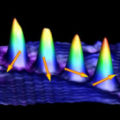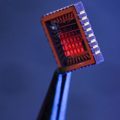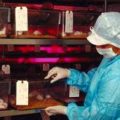
Physicists at the University of Leeds have embarked upon an ambitious multimillion-dollar project to develop new materials that they hope will allow computers to become faster and smaller. Instead of using electrical charges to represent data; processors and memory made of the new materials would rely on magnetism. The researchers claim that using magnetism in place of electricity could eventually provide an excellent basis for quantum computing, an area of study that other researchers are also exploring.
Imagine your computer’s operating system loading the very instant that you switch it on, or having a computer that is more efficient because its memory is not having to replenish thousands of lost electrical charges every second. According to the researchers involved, these improvements and more are completely feasible, as the basic technology is already being used in some memory chips and high performance hard disks found in items like iPods. “The iPod wouldn’t have been possible without the high-speed drive inside it. In the past, simple coils of wire were used but the individual bits of data are now so tiny that exquisitely sensitive detectors are needed to get the data back,” said researcher Dr. Chris Marrows. Using magnetism in microelectronics in such ways is increasingly referred to as spintronics.
The Leeds researchers are currently using a “sputter” machine to make spintronic materials one atom-thin layer at a time. “We are in effect spray painting with atoms in the sputter machine. It gives us the control to build materials layer by layer. It’s the same process – but much more clean and controlled – which causes thin gray layers of gunk to form at the ends of a fluorescent light bulb,” said Dr. Marrows.
As the sophistication of spintronic devices increases, Dr. Marrows is optimistic about eventually using electrons for the storage and processing of information. “Ultimately in the extreme case of operating on the single spin of an electron, spintronics will be an excellent basis for quantum computing,” he enthused.








Comments are closed.